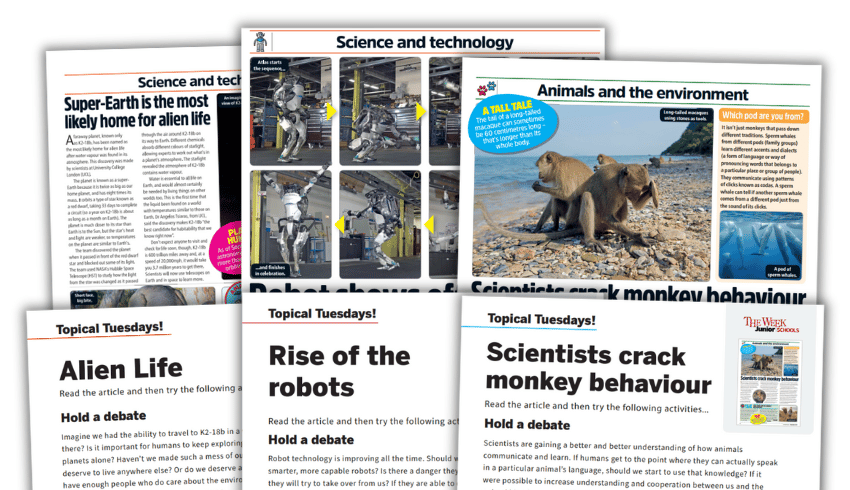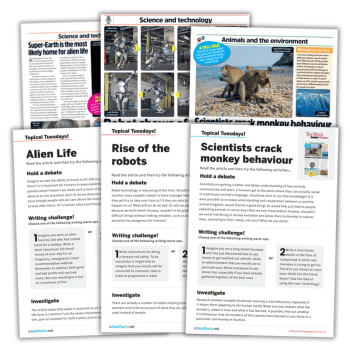Each of these free writing activity sheets for KS2 and KS3 contain a hand-picked story from children’s current affairs magazine, The Week Junior. The accompanying creative resources that go with each news story are written by experienced teachers.
We’ve made it so the activities can be used for 10-minute writing warm-ups and for homework, but you’ll find plenty of ways to extend each article into much bigger projects should they capture the imagination of your class.
Writing activity sheets

Spending more time in nature
- Think about a time you spent in nature and write a recount of it, including all the sights, sounds and smells you experienced.
- Write an informal, persuasive letter from nature to you, asking you to look after it. It can be funny or emotional.
- Write fact files (perhaps even including a sketch) for three to five species of bird you have seen where you live.
Life on a brand new island
- Write an article on how to make a volcanic island.
- Write a humorous poem about it.
- Investigate how you think barn owls, who mainly eat small rodents such as mice, established themselves on this island before the first humans visited it.
A special friendship between an otter and orangutan
- Write a funny or serious conversation between the orangutan and the otters as a scene in a stage play.
- Write a fact file about either species, with information on their natural habitat, diet, behaviour and any threats they face.
- Write a recount of the last time you went to a zoo, farm or other venue which featured live animals.
Fires in the Amazon
- Write an imaginary account of the fires from the perspective of an animal living in the rainforest.
- Write a poem using the metaphor of the Amazon rainforest being the lungs of the world.
- Investigate how much oxygen the Amazon rainforest produces, and how this happens.
Beavers reduce river flooding
- Create a persuasive advert convincing European beavers of the benefits of working in the UK to help look after our rivers.
- Write a humorous song or limerick about a beaver moving here from Europe.
- Write a brief account of an example where an animal has been introduced into a habitat and what effect it had.
More writing activity sheets
- World’s oldest man turns 112
- New words added to the Oxford English Dictionary
- Thousands of children without books
- Found painting sells for £20m
- Scientists crack monkey behaviour
- Mysterious signals from outer space
- Robot shows off gym skills
- Super-Earth most likely place for alien life
- New apple variety stays fresh for a year
- How donating organs can save lives
Find the whole range of free Topical Tuesday resources at Plazoom.











